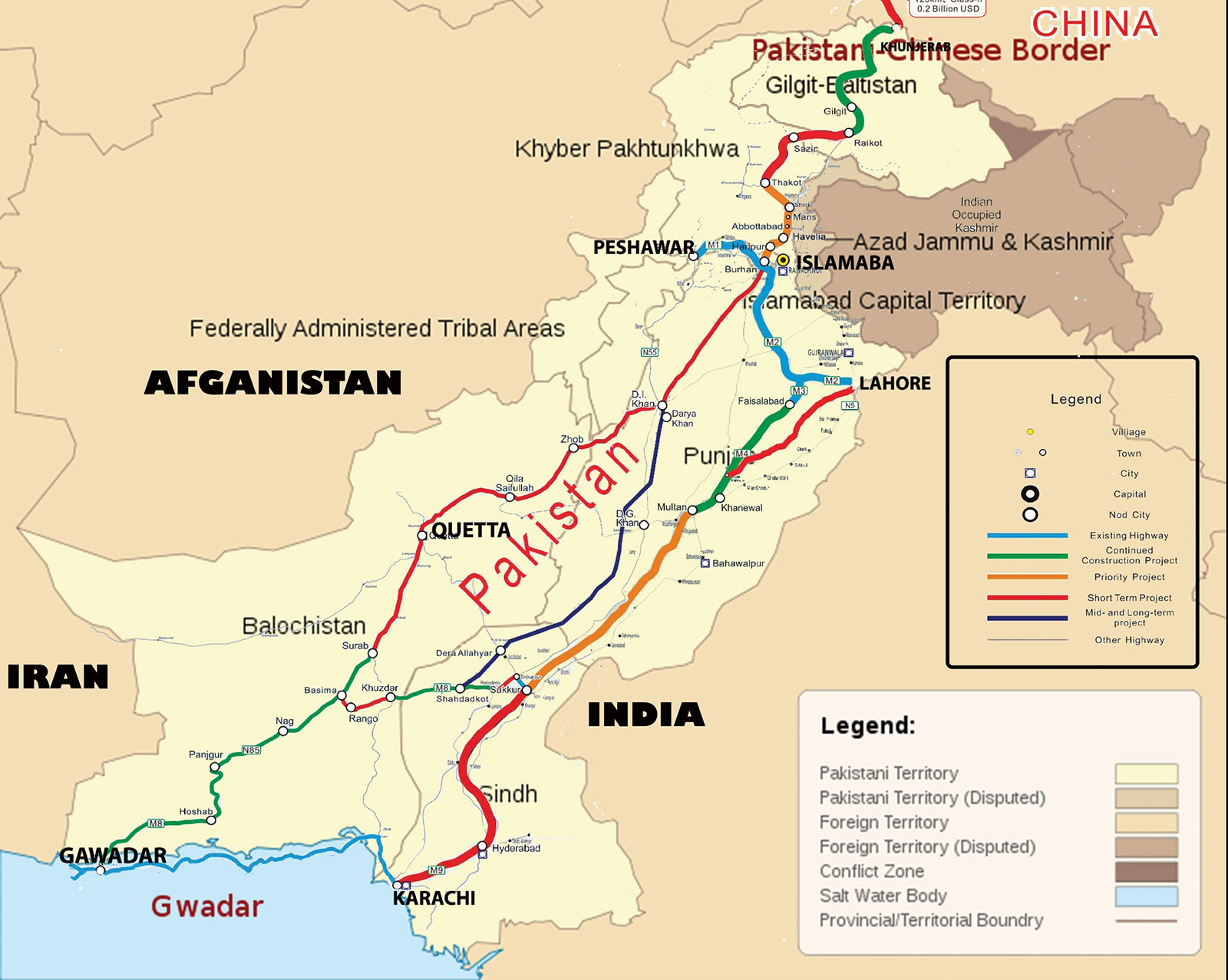What is China doing in Pakistan

How China infiltrates Pakistan's economy. The in-depth analysis by Giuseppe Gagliano
Also in Pakistan, China is implementing its soft power strategy by sending its own anti Covid vaccine. Regardless of the profits that Chinese companies will invoice thanks to the sale of the vaccine and regardless of the competition that China is trying to counter – we naturally allude to the American one – China's interest in Pakistan is central especially as regards the Pakistan corridor. -China.
Also thanks to the centrality of the corridor within the New Silk Road, the Chinese strategy is materializing in a systematic and capillary penetration of the vital ganglia of Pakistan through strategic acquisitions.
Chinese companies are taking over major assets in Pakistan's manufacturing sector the profitable heart of the nation's $ 276 billion economy.
As increased Chinese investment promises to revive Pakistan's ailing economy at a particularly critical time, concerns have been expressed by local businesses and groups that Chinese investors are taking over key local industries, state-owned assets and businesses at the expense of Pakistani actors and interests. In fact, China is the largest contributor of FDI to Pakistan.
Regardless of the China-Pakistan economic corridor, which up to now foresees an investment of 60 billion dollars – there are investments not directly related to the corridor and these investments are built thanks to a low-cost labor and thanks to the guarantee of access to materials raw materials which are then shipped to Chinese factories. In this regard, China is building factories in Pakistan to export finished products directly to European markets that Beijing hopes to reach more easily through its infrastructure investments in the context of the BRI.
Chinese investors are also ready to buy into various loss-making state-owned enterprises that the government has indicated it wants to sell. Losses related to these companies recently reached $ 9.4 billion. In this regard, the Pakistani government plans to sell holdings in state-owned Pakistan Railways (PR), Pakistan International Airlines (PIA) and Pakistan Steel Mills (PSM), among others, to foreign investors and of course China is one of the few bidders. who could easily acquire these holdings.
Official corporate data shows that more than 2,000 Chinese corporate entities have registered in Pakistan, half of them in the capital Islamabad. The data shows that their investments go far beyond the scope of the corridor: in fact, Chinese commercial and industrial enterprises operate throughout the country. That is, in textile factories, cement factories, energy producers, steel mills, housing projects and telecommunication companies. Overall, the number of Chinese companies far exceeds 5,000, including a growing number of unregistered companies. Moreover, many Chinese companies do not register with the Pakistani tax authorities and therefore do not pay taxes, putting local businesses at a competitive disadvantage.
Another particularly relevant sector for the Chinese is energy: Chinese companies are involved in the construction of 27 energy projects linked to the Corridor and of six projects independent of the Corridor project, investments that should help address chronic energy shortages nationwide. .
These include Power China's construction of the $ 8.8 billion Diamer Basha Dam in a joint venture with the Frontier Works Organization, which belongs to the Pakistani military. The 4,500 MW project is expected to be completed in 2028.
In the automotive sector, China's presence is also evident: the Chinese state-owned Changan Automobile Company is installing a $ 136 million automobile assembly plant in Karachi in a joint venture and with Pakistan's Master Group of Industries. The project will launch 30,000 Alsvin models per year. Chinese private interests are also investing heavily in textile manufacturing, a sector that contributes 8.5% of gross domestic product (GDP) and employs 45% of the total industrial workforce. In Punjab, the Shanghai Challenge textile company recently acquired a 25% stake in Masood Textile Mills Faisalabad, a Pakistani clothing hub and textile manufacturers that supplies apparel to Adidas and Puma for the US and European markets.
But China is also active in the metallurgical sector: in fact, the Chinese Metallurgical Construction Corporation (MCC) has shown interest in creating a new steel plant without diem tufate which MCC already manages a copper mine in the Pakistani province of Balochistan, through which it passes coincidentally the Corridor.
This is a machine translation from Italian language of a post published on Start Magazine at the URL https://www.startmag.it/mondo/che-cosa-combina-la-cina-in-pakistan/ on Wed, 03 Feb 2021 15:53:26 +0000.
